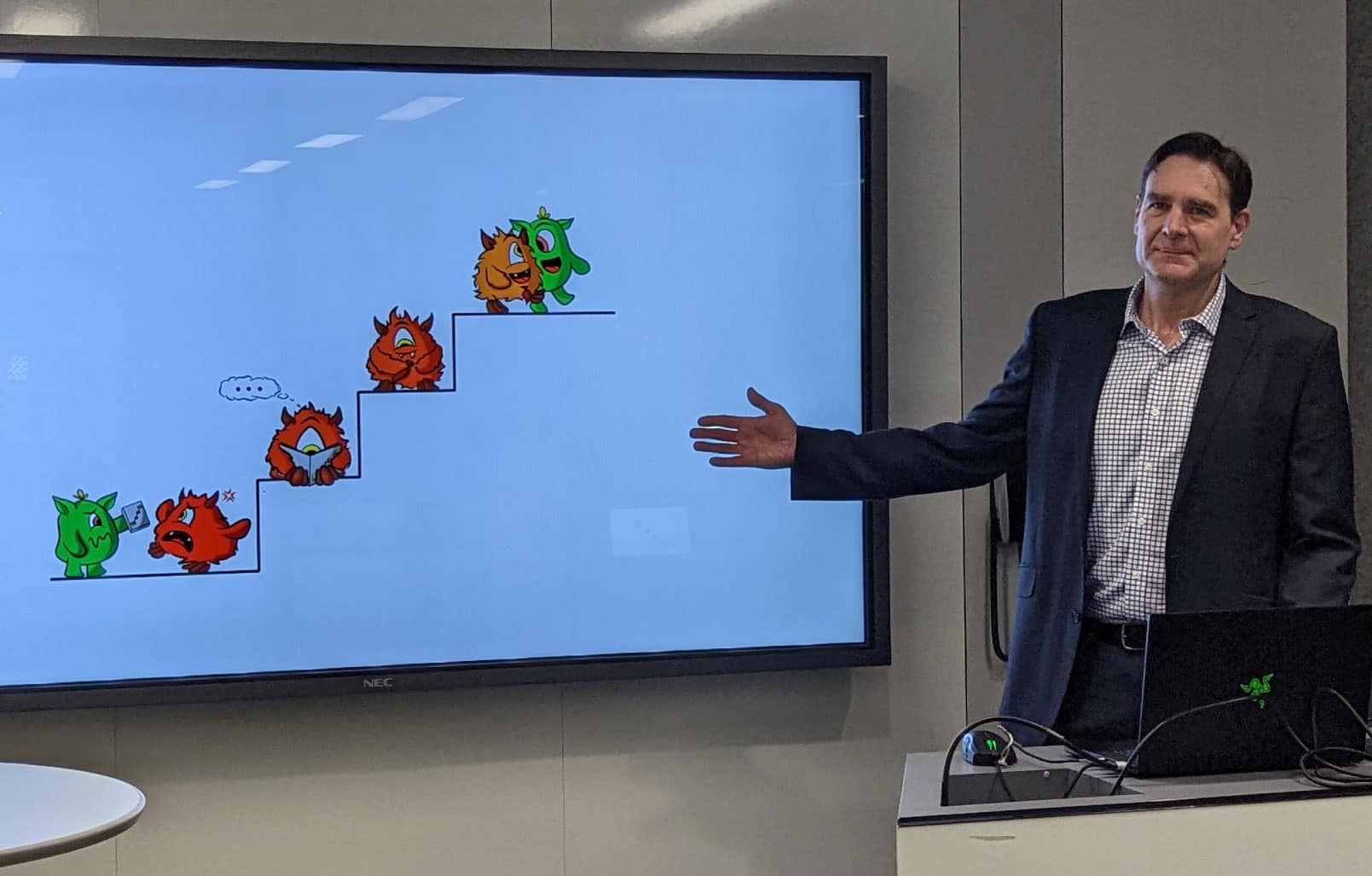Common mistakes new managers make and what to do instead

CEOs and senior managers are more concerned than ever with increased turnover and a lack of engagement. One important way of ensuring that your organisation doesn’t lose staff is supporting new managers to succeed in managing their teams well. There are four key areas that new managers often make mistakes in: Mindset, Vulnerability, Trust and Availability.
- Mindset
New managers need to focus much more on how the team work together, on the outcomes, rather than micromanaging the work of each team member. This can be a challenge because it is often the new manager’s expertise that got them their promotion. Their new role of facilitating the work of the team needs a new focus to the previous role – helping to make others successful.Similarly, new managers have often achieved their success through working long hours to get things done, which can make time for planning and reflection appear to be ‘wasting time’. However, it is vital for new managers to take time to plan ahead and to be clear about the team’s priorities and goals. Not doing so means that managers are unable to respond effectively to queries from team members. Lack of clarity and goals that are not achievable are two common reasons why people leave their jobs.New managers instead need to make time to think about where the team needs to be in 12 months, and consider how best to get there. New managers often feel that they have less time than ever before, yet time to reflect and consider what their new role requires is vital.
- Vulnerability
Another key mistake for new managers to avoid is the idea that because they are a manager, they have to have all the answers, that they have to be perfect. In reality, having all the answers is not really possible, and striving to do so can easily lead to burnout. It is much better for managers to say ‘I’m not sure, but I will find out’. In fact, when managers are prepared to admit that they don’t know, it gives the team members permission to acknowledge their own areas of weakness. The alternative is that team members fear revealing any ignorance or error, worried that it will be used against them in some way. A perfectionist culture like this is sure to demotivate.
Because everyone makes some mistakes, seeing them as an opportunity for continuous improvement is very powerful. Similarly, errors can be a source of valuable information, if time is taken to understand what went wrong and why it went wrong. Then the processes and communication can improve. There are so many elements to consider when something goes wrong and that can be a chance to review ‘the way things are done’ and see if there are better alternatives. - Trust
Building the trust that the team have in their new manager is critical to long term success. Because trust and the character of managers are strongly related, there are some clear indications that may indicate that a new manager is undermining trust:1) refusing to take ownership of any poor decisions or errors
2) shifting the blame onto team members
3) creating a good image for their boss, while treating the team poorly
4) rarely seeking feedback or input in making decisions, even when there were detrimental effects on team members
5) not leading by example and not following through on commitmentsIf a new manager can be encouraged to avoid these destructive practices, the team will trust their new manager, they will be much happier, more productive and more willing to stay with the organisation.
New managers can help to build trust by: taking feedback on board, reprimanding team members in private (not in front of others) and treating people fairly. Similarly, helping out when the workload is unusually high, and accepting that team members also make mistakes will all help to retain good staff and keep them engaged.
- Availability
It is easy for new managers to be overwhelmed by everything that needs to be done. They often fall into the trap of dealing with the urgent, instead of the important. Once appointed as a manager, it can be easy to lose sight of the long-term goal of personal growth, for themselves and each team member. Team members need to know that they are supported in achieving their own goals, as well as the organisation’s goals.When a new manager is concerned about their team members as people, they take the time to understand each person’s goals. They are available as a ‘sounding board’ and a mentor. All of this requires having short chats with each team member (one to one) on a regular basis. These informal chats are also an excellent way for new managers to learn what has worked well for the team in the past, and hear what has not worked so well. There could also be the opportunity to identify major obstacles that the team are encountering. Resolving these can give a new manager an early win that boosts their confidence and develops team loyalty.
When senior managers take the time to help new managers to understand some of these classic mistakes, they can be avoided. This in turn enables new managers to put their time and energy into those things that will deliver long term success.
Written by Dr. Dominic Mcloughlin.
Have you read?
Best Business Schools In The World For 2022.
Best Fashion Schools In The World For 2022.
Best Hospitality And Hotel Management Schools In The World For 2022.
Best Medical Schools In The World For 2022.
The World’s Best Universities For Doctor of Business Administration (DBA), 2022.
Bring the best of the CEOWORLD magazine's global journalism to audiences in the United States and around the world. - Add CEOWORLD magazine to your Google News feed.
Follow CEOWORLD magazine headlines on: Google News, LinkedIn, Twitter, and Facebook.
Copyright 2025 The CEOWORLD magazine. All rights reserved. This material (and any extract from it) must not be copied, redistributed or placed on any website, without CEOWORLD magazine' prior written consent. For media queries, please contact: info@ceoworld.biz








